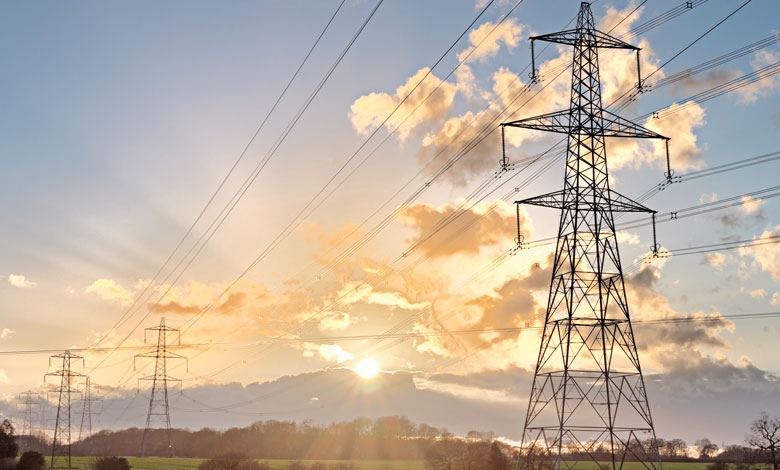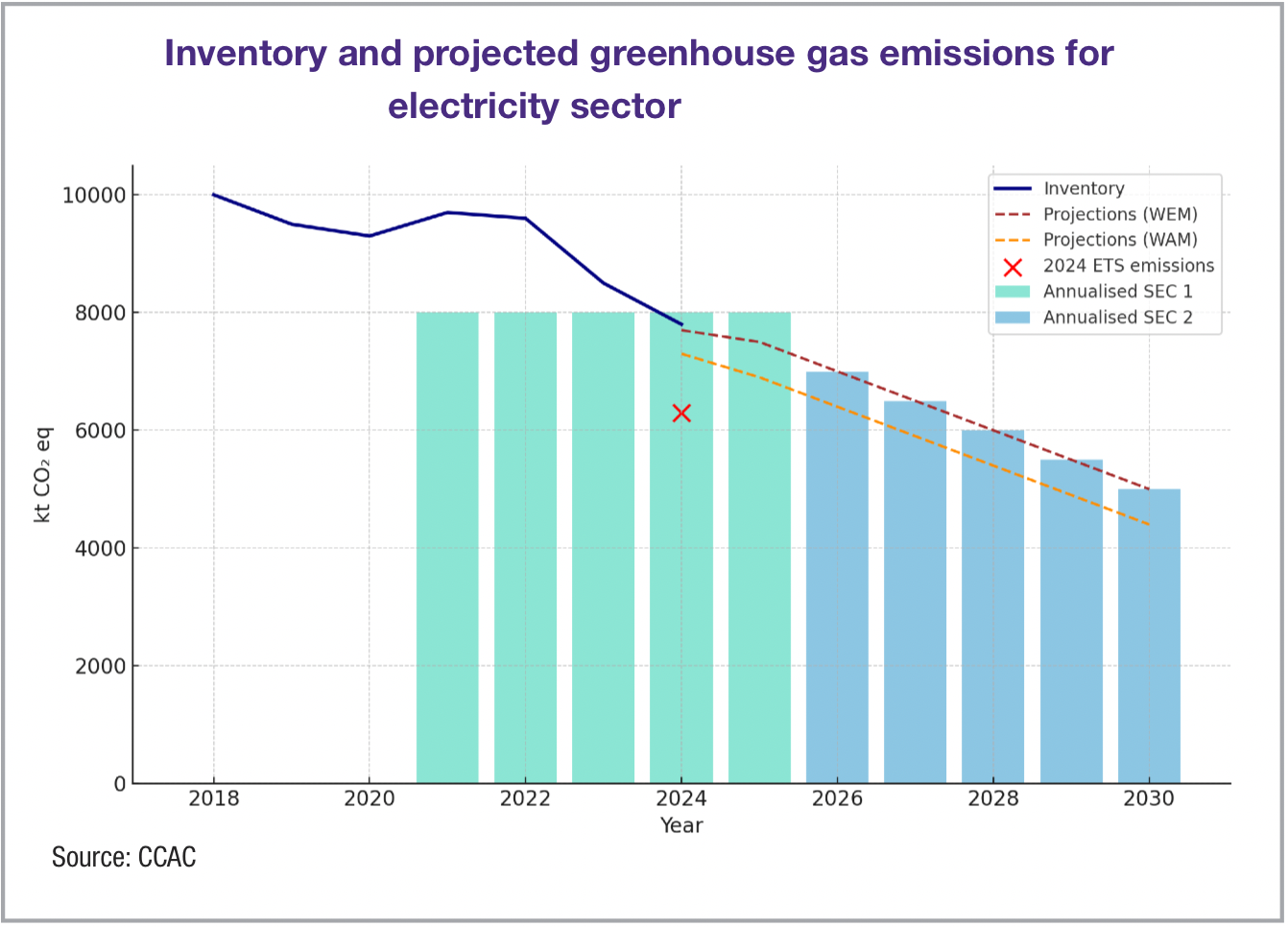
The Climate Change Advisory Council has said that the Government and the regulator “must ensure that electricity suppliers offer customers price plans that allow them to save money, change consumption patterns, and reduce emissions”.
In its annual electricity report, published in April 2025, the Climate Change Advisory Council (CCAC) states that Ireland’s carbon intensity of electricity generation is higher than the EU average. This is due to continued reliance on coal and oil, which are estimated to have contributed 13.4 per cent and 3.1 per cent of total electricity emissions respectively in 2024, while accounting for only 3.2 per cent and 0.7 per cent of indigenous generation.
Electricity emissions are reported to be 6.3 MtCO2eq in 2024, a decrease of 7.3 per cent from 2023 levels, with imports representing 14.8 per cent of electricity supplied in 2024.
Renewable electricity
While 1.6 GW of onshore wind (0.7 GW) and solar (0.9 GW) renewable projects received planning permission during 2024, only an additional 0.5 GW (0.2 GW onshore wind and 0.3 GW solar) of new utility-scale renewable capacity was connected, which is significantly below the 1.8 GW annual average increase in capacity that is required to meet 2030 targets.
In 2024, the dispatch-down energy from wind resources was 1,266 GWh (10.1 per cent of the total available wind energy) and 39 GWh from solar resources (5.3 per cent of the total available solar energy).
In addition to the 0.3 GW of grid-scale solar capacity connected in 2024, there has been a significant increase in small-scale renewable generation, comprising mainly domestic rooftop solar photovoltaic panels, with a total of 0.5 GW connected by the end of 2024
Delivering a resilient electricity system
The CCAC calls on the Government to “urgently prioritise a more systemic approach to the delivery of a resilient electricity system that can withstand and recover quickly from disruptions such as extreme weather, economic shocks and cyberattacks”. This requires “significant additional capital investments – beyond business as usual – close inter-agency coordination, robust resilience metrics and maximising innovative technology use”.
The report also says that long-term development of multiple maritime ports to facilitate the construction, operation and maintenance of offshore renewable energy infrastructure “should be prioritised through a systemic approach”.
Increasing electricity supply
The report says government should “immediately align the legal mandate and strategy for all public bodies to act in conformity with the Climate Act 2021” and ensure “full depreciation of fossil fuel regulatory assets by 2050 as an integral part of the energy transition plan”.
One-fifth of the existing onshore wind fleet (>850 MW) will reach the end of its planning permission or require decommissioning by 2030. The CCAC calls on planners at local and national levels to adopt a constructive approach to repowering projects, including the appropriate use of the Habitats Directive derogation for imperative reasons of overriding public interest, while ensuring biodiversity benefits and risk mitigation.
“Sufficient resourcing and prioritisation within planning authorities will be critical to ensure that statutory timelines are adhered to for the significant volume of renewable planning decisions that need to be made in order to meet national targets, with the Council also calling on industry to accelerate construction of the 2 GW of onshore wind projects that have already received planning permission.”
The report also says that “significant investment and political support at national, regional, and local levels for upgrading the electricity grid infrastructure is vital for achieving the renewable energy targets and ensuring a sustainable, reliable and resilient electricity supply to all parts of the country”. The CCAC therefore calls for “the swift implementation of all solutions identified in EirGrid’s Shaping Our Electricity Future Roadmap and ESB Networks’ Networks for Net Zero strategy, with full transparency and monthly public reporting on the progress of each project”.
Demand flexibility and reducing costs
In order to help customers save money and move their electricity consumption away from peak times, the CCAC says that government “must implement the legislative changes and licence modifications required to facilitate access to smart metering data as an immediate priority”.
“A campaign to encourage more customers to download their smart metering data from the ESB Networks online portal along with an expansion of the education and insights provided is required. The CRU has regrettably extended the deadline to 1 June 2026 for the introduction of standard dynamic price contracts to the retail electricity market, despite legislation enacted in 2022 entitling customers to dynamic electricity price contracts.
“The Council is calling on the CRU and electricity suppliers to offer a standard dynamic price contract to customers as soon as possible, in line with their legislated requirements. ICT solutions to inform customers about their real-time electricity consumption and pricing are needed to empower customers to reduce costs.”
The CCAC asserts that an enhanced emissions reporting scheme for large energy users must be operational by the end of 2025. “The Council expresses its deep disappointment at Ireland’s failure to transpose the recast Energy Efficiency Directive on time, including the failure to establish a publicly accessible reporting mechanism on the sustainability of data centres operating in Ireland.”
Commenting on the launch of the review of the electricity sector, Marie Donnelly, Chair of the CCAC says: “Despite the installation of almost two million smart meters, people, households, and businesses cannot easily access data on the consumption of their electricity to avail of better tariffs.
“Electricity suppliers must provide new tariffs, as set out in legislation, which is vital to both altering consumption patterns and shifting electricity usage away from peak times and saving people, households and businesses money. It is for these reasons that we are calling on the CRU to reconsider its decision to extend the deadline for electricity suppliers to offer these new tariffs.”






